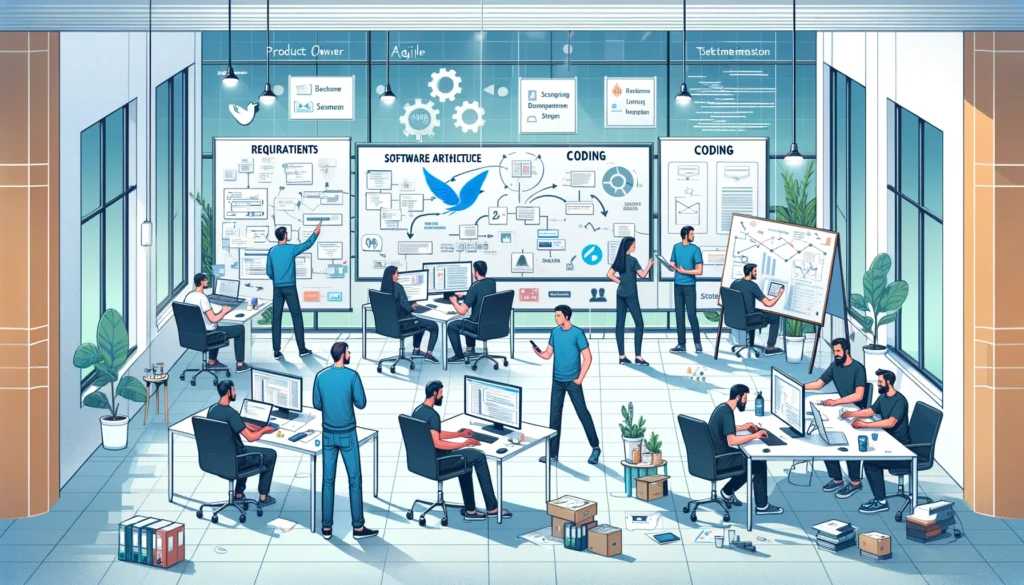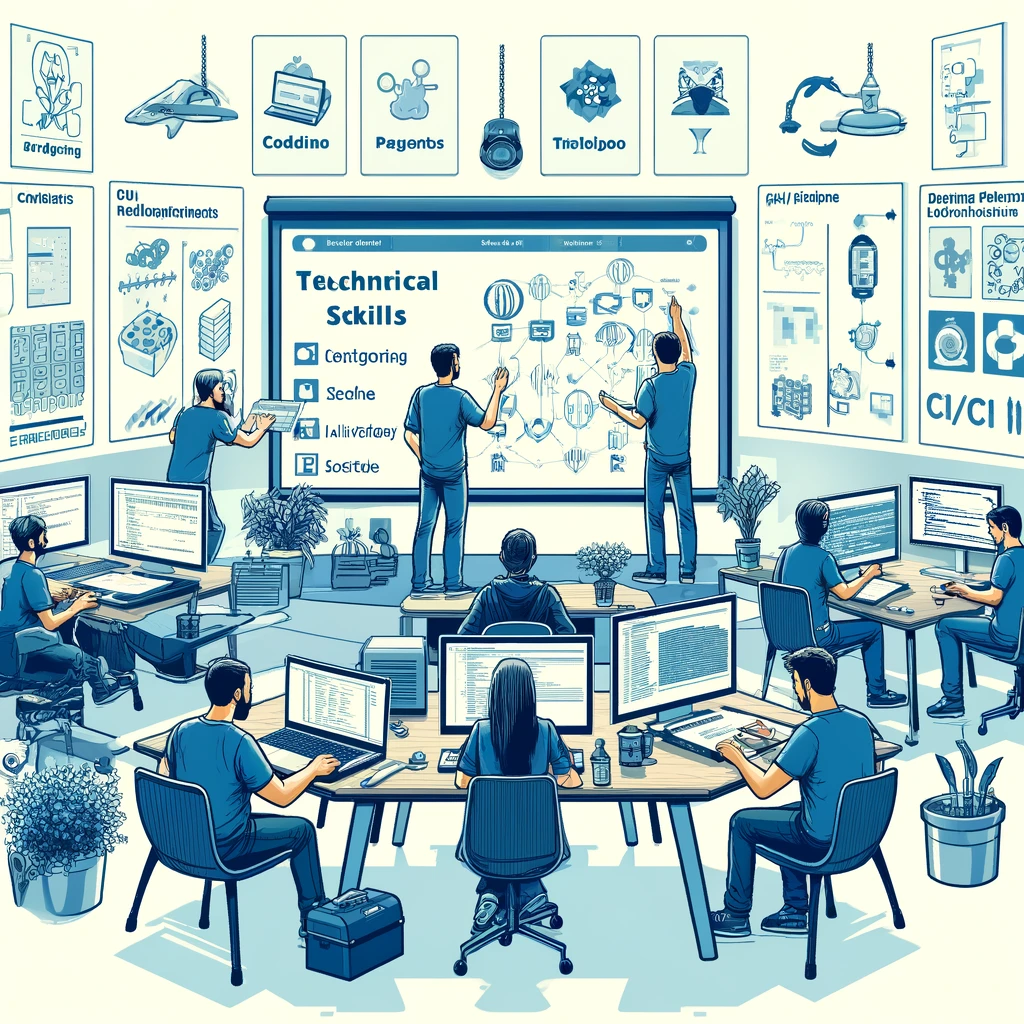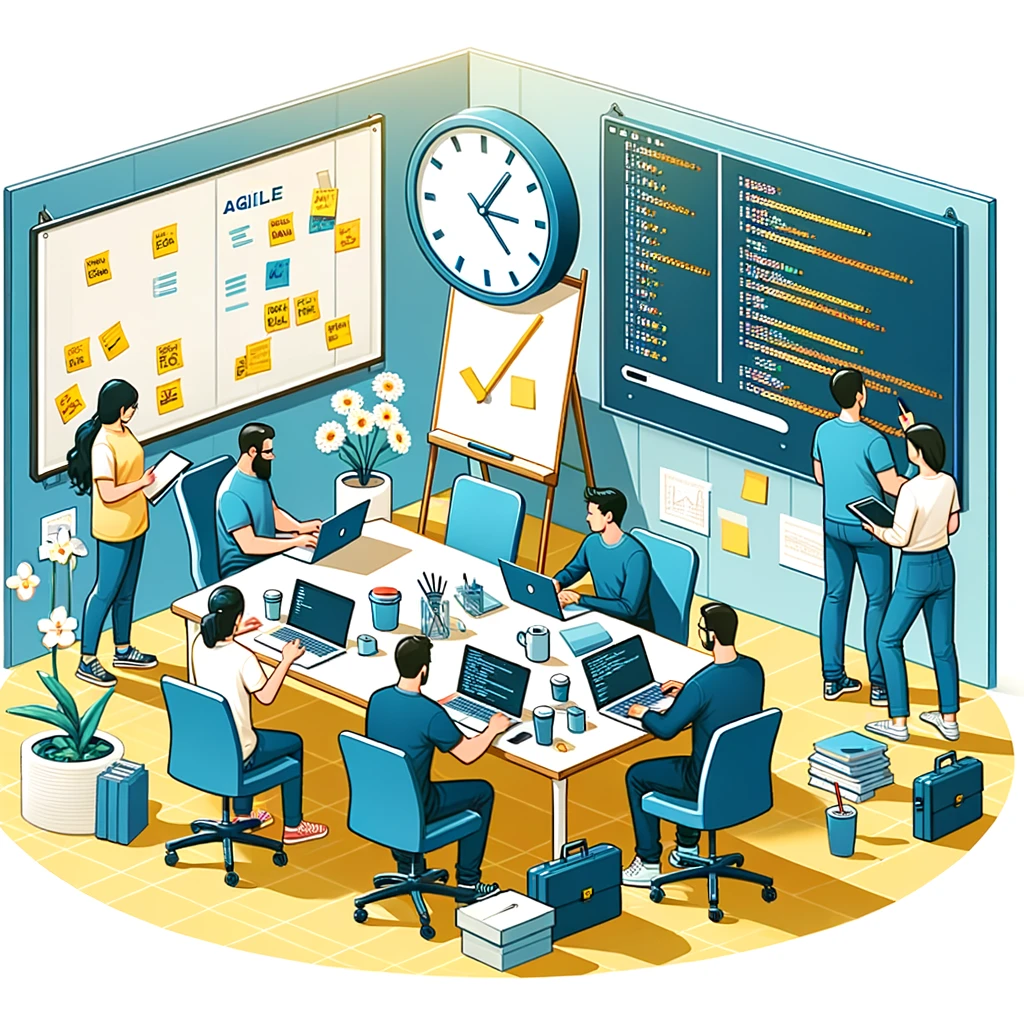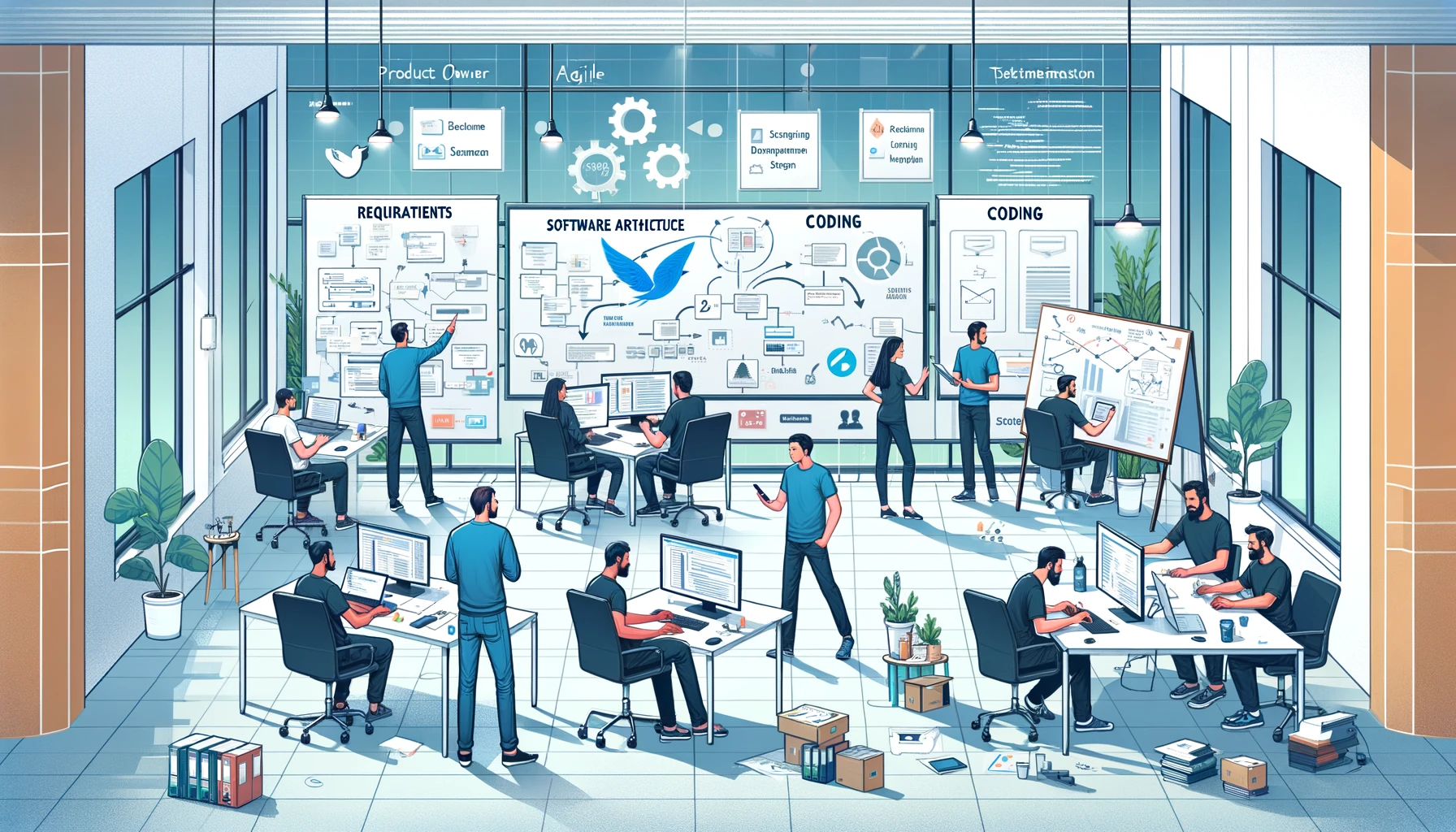
Introduction
Software Engineer Model In the dynamic world of software development, Agile methodology is a leading framework. Agile focuses on flexibility, teamwork, and meeting customer needs. Within this framework, the role of a software engineer has evolved significantly. The ” Software Engineering Model ” in Agile combines technical skills, adaptability, and effective communication. Software Engineer Model This article explores the importance, responsibilities, and necessary skills of the Software Engineer Model in Agile development.
Understanding the Software Engineer Model
The Software Engineer Model in Agile involves more than just writing and fixing code. Agile methods like Scrum and Kanban emphasize iterative progress, continuous feedback, and teamwork. Therefore, software engineers contribute to various stages of the development lifecycle. This includes planning, designing, coding, testing, and deploying software.
Key Responsibilities
Requirement Analysis and Planning
In Agile, requirements change frequently. Software engineering model participate in requirement analysis sessions, working with product owners and stakeholders to refine user stories and acceptance criteria. Software Engineer Model This ensures everyone understands the project scope. It also helps estimate the effort required for each iteration.
Design and Architecture
Agile promotes incremental design. Engineers design system components step-by-step, ensuring scalable and maintainable architecture. They balance immediate functionality with long-term system evolution, supporting future enhancements.
Coding and Implementation
Coding remains central, but Agile engineers also engage in pair programming and code reviews. These practices encourage knowledge sharing, improve code quality, and reduce defects early in development.
Testing and Quality Assurance
Agile methodologies advocate for continuous integration and continuous delivery (CI/CD). Engineers write automated tests and conduct manual tests when necessary. Software engineering model They ensure code changes don’t introduce new issues. This proactive approach to quality assurance is crucial for maintaining a stable and reliable product.
Deployment and Maintenance
The Software Engineer Model includes deploying software into production environments. Engineers collaborate with DevOps teams to automate deployment processes. They monitor system performance and address post-deployment issues. This ensures a smooth and efficient release cycle.
Collaboration and Communication
Effective communication is vital in Agile development. Engineers participate in daily stand-ups, sprint reviews, and retrospectives. They share progress, discuss challenges, and find solutions together.
Skills Required for the Software Engineer Model
Technical Skills
- Proficiency in Programming Languages: Engineers need to master relevant programming languages. They must write clean, efficient, and maintainable code.
- Knowledge of Agile Tools and Practices: Familiarity with Agile tools (e.g., JIRA, Trello) and practices (e.g., Test-Driven Development, Behavior-Driven Development) is crucial. These are necessary for effective collaboration and workflow management.
- Understanding of Software Design Patterns: Knowledge of design patterns helps engineers create flexible and reusable code structures. This promotes maintainability and scalability.
- Experience with CI/CD Pipelines: Proficiency in setting up and managing CI/CD pipelines ensures efficient testing and deployment. This reduces the time to market.

Soft Skills
- Adaptability: Agile projects often change in requirements and priorities. Engineers must be adaptable, open to new ideas, and continuously learn and evolve with the project.
- Communication: Clear communication is vital for collaborating with cross-functional teams and stakeholders. Engineers should articulate technical concepts to non-technical audiences effectively.
- Problem-Solving: Analyzing complex problems, identifying root causes, and implementing effective solutions are critical. This is especially important in an Agile environment with rapid iterations.
- Teamwork: Agile development relies on collaboration. Engineers must work well in teams, sharing knowledge, providing constructive feedback, and supporting their peers.
The Impact of the Software Engineer Model on Agile Development
Improved Quality and Faster Delivery
Agile’s iterative nature, supported by engineers’ proactive involvement in testing and quality assurance, leads to higher-quality software. Software Engineer Model Continuous feedback loops enable engineers to identify and fix issues promptly, resulting in fewer defects and more reliable releases. Automation of testing and deployment processes accelerates the delivery cycle, allowing teams to respond quickly to market demands.
Enhanced Collaboration and Innovation
The Software Engineer Model fosters a culture of collaboration and innovation. Engineers’ participation in planning and design discussions brings valuable technical insights that shape the product’s direction. Emphasis on teamwork and knowledge sharing encourages creative problem-solving. It also promotes exploring new technologies and methodologies.
Greater Flexibility and Responsiveness
Agile projects are characterized by their flexibility and responsiveness to change. The Software Engineer Model focuses on adaptability and continuous learning. This ensures teams can pivot quickly when requirements evolve. This agility is essential for staying competitive in a fast-paced market. It is also crucial for meeting customer expectations.
Conclusion
The role of a software engineer in Agile development has evolved into a dynamic and integral part of the software development lifecycle. The Software Engineer Model represents a comprehensive approach combining technical skills with collaborative abilities. This drives Agile project success. By embracing this model, organizations can achieve higher quality, faster delivery, and greater innovation. Ultimately, they deliver exceptional value to their customers. As Agile methodologies continue to evolve, the Software Engineer Model will remain a cornerstone of effective and efficient software development.
FAQs
1. What is the role of a software engineer in Agile development?
A software engineer in Agile development is involved in all stages of the development lifecycle. This includes planning, designing, coding, testing, and deploying software. They work closely with cross-functional teams and stakeholders to ensure the delivery of high-quality products.
2. What skills are essential for a software engineer in Agile?
Key skills include proficiency in programming languages, knowledge of Agile tools and practices, understanding of software design patterns, experience with CI/CD pipelines, adaptability, communication, problem-solving, and teamwork.
3. How does the Software Engineer Model improve Agile development?
The Software Engineer Model improves Agile development by fostering collaboration. It enhances code quality through practices like pair programming and code reviews. It promotes continuous integration and delivery. This model leads to higher-quality software, faster delivery, and greater innovation.
4. What are the main responsibilities of a software engineer in Agile?
Software Engineer Model main responsibilities include requirement analysis and planning, design and architecture, coding and implementation, testing and quality assurance, deployment and maintenance, and collaboration and communication.
5. Why is adaptability important for software engineers in Agile?
Adaptability is crucial because Agile projects often change in requirements and priorities. Engineers must be able to adjust quickly to new information and evolving project needs to ensure successful delivery.
6. How does effective communication benefit Agile development?
Effective communication ensures that all team members and stakeholders are aligned. Progress is transparent, and challenges are addressed collaboratively. This leads to smoother project execution and better outcomes.
7. What impact does the Software Engineer Model have on project delivery?
The Software Engineer Model enhances project delivery by ensuring continuous feedback. Proactive quality assurance, and efficient deployment processes. This results in faster, more reliable releases that meet customer needs.


